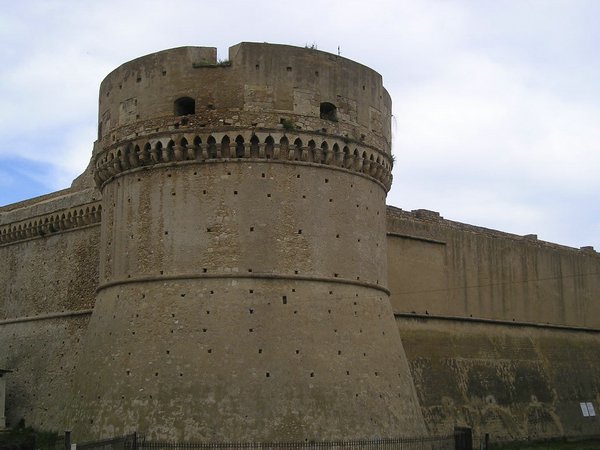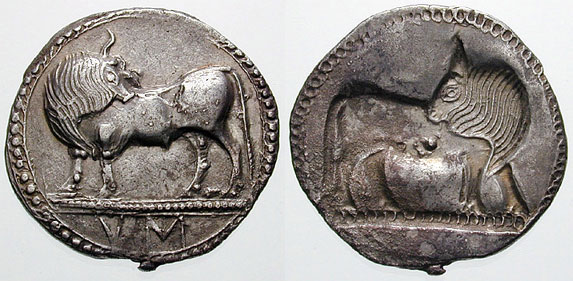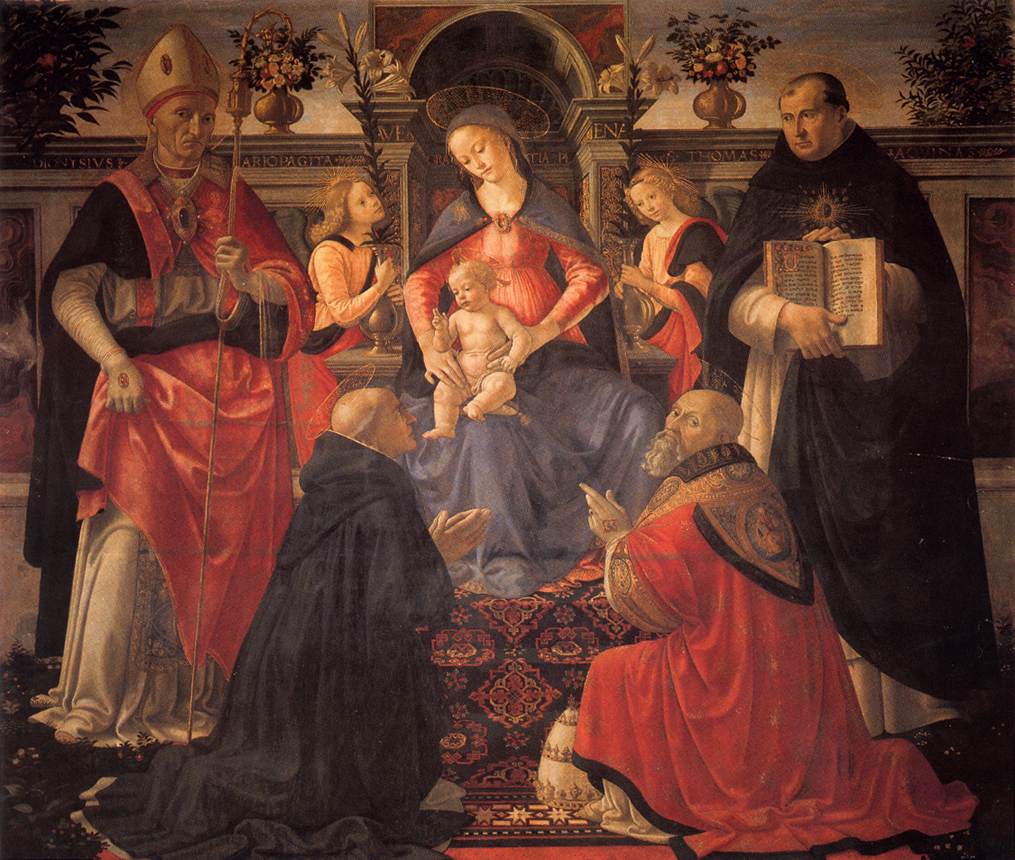|
Crotone
Crotone (; ; or ) is a city and ''comune'' in Calabria, Italy. Founded as the Achaean colony of Kroton ( or ; ), it became a great Greek city, home of the renowned mathematician-philosopher Pythagoras amongst other famous citizens, and one of the most important centres of Magna Graecia. It was known as Cotrone from the Middle Ages until 1928, when its name was changed to the current one. In 1992, it became the capital of the newly established Province of Crotone. History The promontory of Kroton was inhabited by indigenous populations, perhaps Oenotrians and Japigi, in the Bronze Age and early Iron Age. Foundation Kroton's '' oikistes'' (founder) was Myscellus, from the city of Rhypes in Achaea in the northern Peloponnese, after consulting the Delphic Oracle who announced: :''Cross the vast sea and next to the Esaro (river) you will found Kroton.'' The Achaeans were motivated, like others of the Greek colonisation, by the lack of cultivatable land in their mounta ... [...More Info...] [...Related Items...] OR: [Wikipedia] [Google] [Baidu] |
Province Of Crotone
The province of Crotone () is a province in the Calabria region of Italy. It was formed in 1992 out of a section of the province of Catanzaro. The provincial capital is the city of Crotone. It borders the provinces of Cosenza, Catanzaro, and also the Ionian Sea. It contains the mountain Pizzuta, the National Park of the Sila, Montagnella Park, and the Giglietto Valley. Crotone was founded in 710 BCE. It participated in the Second Punic War against the Roman Republic. The province contains 27 ''comuni'' (: ''comune''), listed at ''comuni'' of the province of Crotone. History The area around Capo Colonna, the easternmost point of the province, revealed numerous archaeological remains of Stone Age settlements, with large quantities of Neolithic pottery being found. The Greeks settled on the coasts of Calabria during the 8th and 7th centuries BC, and the city of Crotone was founded, under the name of ''Kroton'', by Greek Achaeans in around 710 BC. It grew to become a town of 50,0 ... [...More Info...] [...Related Items...] OR: [Wikipedia] [Google] [Baidu] |
Calabria
Calabria is a Regions of Italy, region in Southern Italy. It is a peninsula bordered by the region Basilicata to the north, the Ionian Sea to the east, the Strait of Messina to the southwest, which separates it from Sicily, and the Tyrrhenian Sea to the west. It has 1,832,147 residents as of 2025 across a total area of . Catanzaro is the region's capital. Calabria is the birthplace of the name of Italy, given to it by the Ancient Greeks who settled in this land starting from the 8th century BC. They established the first cities, mainly on the coast, as Greek colonisation, Greek colonies. During this period Calabria was the heart of Magna Graecia, home of key figures in history such as Pythagoras, Herodotus and Milo of Croton, Milo. In Roman times, it was part of the ''Regio III Lucania et Bruttii'', a region of Roman Italy, Augustan Italy. After the Gothic War (535–554), Gothic War, it became and remained for five centuries a Byzantine empire, Byzantine dominion, fully recove ... [...More Info...] [...Related Items...] OR: [Wikipedia] [Google] [Baidu] |
Magna Graecia
Magna Graecia refers to the Greek-speaking areas of southern Italy, encompassing the modern Regions of Italy, Italian regions of Calabria, Apulia, Basilicata, Campania, and Sicily. These regions were Greek colonisation, extensively settled by Greeks beginning in the 8th century BC. Initially founded by their ''metropoleis'' (mother cities), the settlements evolved into independent and powerful Greek city-states (''poleis''). The settlers brought with them Ancient Greece, Hellenic civilization, which over time developed distinct local forms due to both their distance from Greece and the influence of the indigenous peoples of southern Italy. This interaction left a lasting imprint on Italy, including on Ancient Rome, Roman culture. The Greek settlers also influenced native groups such as the Sicels and the Oenotrians, many of whom adopted Greek culture and became Hellenization, Hellenized. In areas like architecture and urban planning, the colonies sometimes surpassed the achievem ... [...More Info...] [...Related Items...] OR: [Wikipedia] [Google] [Baidu] |
Pythagoras
Pythagoras of Samos (; BC) was an ancient Ionian Greek philosopher, polymath, and the eponymous founder of Pythagoreanism. His political and religious teachings were well known in Magna Graecia and influenced the philosophies of Plato, Aristotle, and, through them, Western philosophy. Modern scholars disagree regarding Pythagoras's education and influences, but most agree that he travelled to Croton in southern Italy around 530 BC, where he founded a school in which initiates were allegedly sworn to secrecy and lived a communal, ascetic lifestyle. In antiquity, Pythagoras was credited with mathematical and scientific discoveries, such as the Pythagorean theorem, Pythagorean tuning, the five regular solids, the theory of proportions, the sphericity of the Earth, the identity of the morning and evening stars as the planet Venus, and the division of the globe into five climatic zones. He was reputedly the first man to call himself a philosopher ("lover of wi ... [...More Info...] [...Related Items...] OR: [Wikipedia] [Google] [Baidu] |
Sybaris
Sybaris (; ) was an important ancient Greek city situated on the coast of the Gulf of Taranto in modern Calabria, Italy. The city was founded around 720 BC by Achaeans (tribe), Achaean and Troezenian settlers and the Achaeans also went on to found the nearby great city of Crotone, Kroton 10 years later. Sybaris amassed great wealth thanks to its fertile land and busy port so that it was known as the wealthiest colony of the Greek Archaic world. Its inhabitants became famous among the Greeks for their hedonism, feasts, and excesses, to the extent that "sybarite" and "sybaritic" have become bywords for opulence, luxury, and outrageous pleasure-seeking. Sybaris also ruled over smaller colonies throughout the area, and had an ''acropolis'' at Timpone della Motta near Francavilla Marittima about 10 km distant. The city of Sybaris was destroyed in about 510 BC by its neighbour Kroton and its population driven out, but its colonies in the area continued to exist. It was replaced ... [...More Info...] [...Related Items...] OR: [Wikipedia] [Google] [Baidu] |
Democedes
Democedes of Croton (; ), described in '' The Histories of Herodotus'' as "the most skillful physician of his time". Democedes's background Democedes was a Greek physician and a member of the court of Darius I. He was born in Croton, in Magna Graecia. His father was Calliphon, a priest and physician at Croton at the time of Pythagoras. His first position as physician seems to be in civil service of Athens and Aegina. Later he entered service under Polycrates. In 522 B.C., Polycrates, his entourage, and Democedes were all captured as Lydians by Oroetes and sent to Susa. Democedes's travels Herodotus describes the journeys of Democedes with much detail. Services rendered to Darius and Atossa Darius once sprained his ankle while he was hunting, and his Egyptian doctors could not help his ankle. However, Democedes was able to heal his ankle, and he was thereafter given great esteem. The court regarded his actions highly enough that he was able to eat in the presence of the king. ... [...More Info...] [...Related Items...] OR: [Wikipedia] [Google] [Baidu] |
Caulonia (ancient City)
Caulonia or Caulon (; also spelled Kaulonia or Kaulon) was an ancient city on the shore of the Ionian Sea near Monasterace, Italy. At some point after the destruction of the city by Rome in 200 BC, the inhabitants moved to a location further inland where they founded Stilida which developed into the modern town Stilo. Since 1863 AD the name Caulonia has also been used by the town 15km away formerly known as Castelvetere. The city changed its name to Caulonia in honour of the ancient city, which was mistakenly believed to have been located in its territory. Some of the artefacts which have been excavated at the site can now be seen in the Monasterace Archaeological Museum. Geography The city was located between the mouth of the Stilaro river to the south and the mouth of the Assi river to the north. In ancient times the mouth of the Assi was located slightly further to the south. Punta Stilo, the "Cape of Columns", is a gentle arc-shaped headland located immediately ... [...More Info...] [...Related Items...] OR: [Wikipedia] [Google] [Baidu] |
Greek Colonisation
Greek colonisation refers to the expansion of Archaic Greeks, particularly during the 8th–6th centuries BC, across the Mediterranean Sea and the Black Sea. The Archaic expansion differed from the Iron Age migrations of the Greek Dark Ages, in that it consisted of organised direction (see ) away from the originating ''metropolis'' rather than the simplistic movement of tribes, which characterised the aforementioned earlier migrations. Many colonies, or (, ), that were founded during this period eventually evolved into strong Greek city-states, functioning independently of their ''metropolis''. Motives Greek colonisation was typically motivated by a combination of factors, depending on the context. Many Greek city-states experienced strong economic growth with consequent overpopulation of the motherland, such that the existing territory of these Greek city-states could no longer support a growing polity. The areas where the Greeks would try to colonise were hospitabl ... [...More Info...] [...Related Items...] OR: [Wikipedia] [Google] [Baidu] |
Central-Southern Calabrian
The primary languages of Calabria are the Italian language as well as regional varieties of Extreme Southern Italian and Neapolitan languages, all collectively known as Calabrian (). In addition, there are speakers of the Arbëresh variety of Albanian, as well as Calabrian Greek speakers and pockets of Occitan. Calabrian (''calabrese'') Calabrian ( Italian: ) refers to the Romance varieties spoken in Calabria, Italy. The varieties of Calabria are part of a strong dialect continuum that are generally recognizable as Calabrian, but that are usually divided into two different language groups: *In the southern two-thirds of the region, the Calabrian varieties are grouped as Central-Southern Calabrian, and are usually classified as part of Extreme Southern Italian (''italiano meridionale estremo'') language group *In the northern one-third of the region, the Calabrian dialects are often classified typologically with Neapolitan language (it: ) and are called Northern Calabrian o ... [...More Info...] [...Related Items...] OR: [Wikipedia] [Google] [Baidu] |
Reggio Calabria
Reggio di Calabria (; ), commonly and officially referred to as Reggio Calabria, or simply Reggio by its inhabitants, is the List of cities in Italy, largest city in Calabria as well as the seat of the Metropolitan City of Reggio Calabria. As of 2025, it has 168,572 inhabitants and is the List of cities in Italy, twenty-first most populous city in Italy, after Modena and other Italian cities, and the List of metropolitan areas in Europe, 100th most populated city in Europe. Reggio Calabria is located near the center of the Mediterranean and is known for its climate, ethnic and cultural diversity. It is the third economic centre of mainland Southern Italy. About 511,935 people live in its metropolitan city.Reggio is located on the "toe" of the Italian Peninsula and is separated from the island of Sicily by the Strait of Messina. It is situated on the slopes of the Aspromonte, a long, craggy mountain range that runs up through the centre of the region. As a major functional pole ... [...More Info...] [...Related Items...] OR: [Wikipedia] [Google] [Baidu] |
Milo Of Croton
Milo or Milon of Croton () was a famous Ancient Greece, ancient Greek athlete from Crotone, Croton, which is today in the Magna Graecia region of southern Italy. Milo was a six-time winner at the Ancient Olympic Games, Olympics, once for boys' wrestling in 540 BC at the 60th Olympics and later five times for wrestling at the 62nd to 66th Olympics. He continued competing long after what would have been considered a normal Olympic athlete's prime, and would have been over 40 years of age by the 67th Olympiad. He also attended many of the Pythian Games. His historicity is attested by many classical authors, among them Aristotle, Pausanias (geographer), Pausanias, Cicero, Herodotus, Vitruvius, Epictetus, and the author of the ''Suda'', but there are many legendary stories surrounding him. Diodorus Siculus wrote in his history that Milo was a follower of Pythagoras who commanded the Crotonian army which defeated the Sybaris, Sybarites in 511 BC, while wearing his Olympic wreaths and d ... [...More Info...] [...Related Items...] OR: [Wikipedia] [Google] [Baidu] |
Dionysius The Areopagite
Dionysius the Areopagite (; ''Dionysios ho Areopagitēs'') was an Athenian judge at the Areopagus Court in Athens, who lived in the first century. A convert to Christianity, he is venerated as a saint by multiple denominations. Life As related in the Acts of the Apostles (), he was converted to Christianity by the preaching of Paul the Apostle, being first stirred to Christian doctrine by Paul's Areopagus sermon, sermon at the Areopagus: After his conversion, Dionysius became the first Bishop of Athens, though he is sometimes counted as the second after Hierotheos the Thesmothete, Hierotheus. He is venerated as a saint in the Catholic Church, Catholic and the Eastern Orthodox Church, Eastern Orthodox churches. He is the patron saint of Athens and is venerated as the protector of judges and the judiciary. His memory is celebrated on October 3. Historic confusions In the early sixth century the so-called ''Pseudo-Dionysius the Areopagite, Corpus Dionysiacum'', a series of ... [...More Info...] [...Related Items...] OR: [Wikipedia] [Google] [Baidu] |









